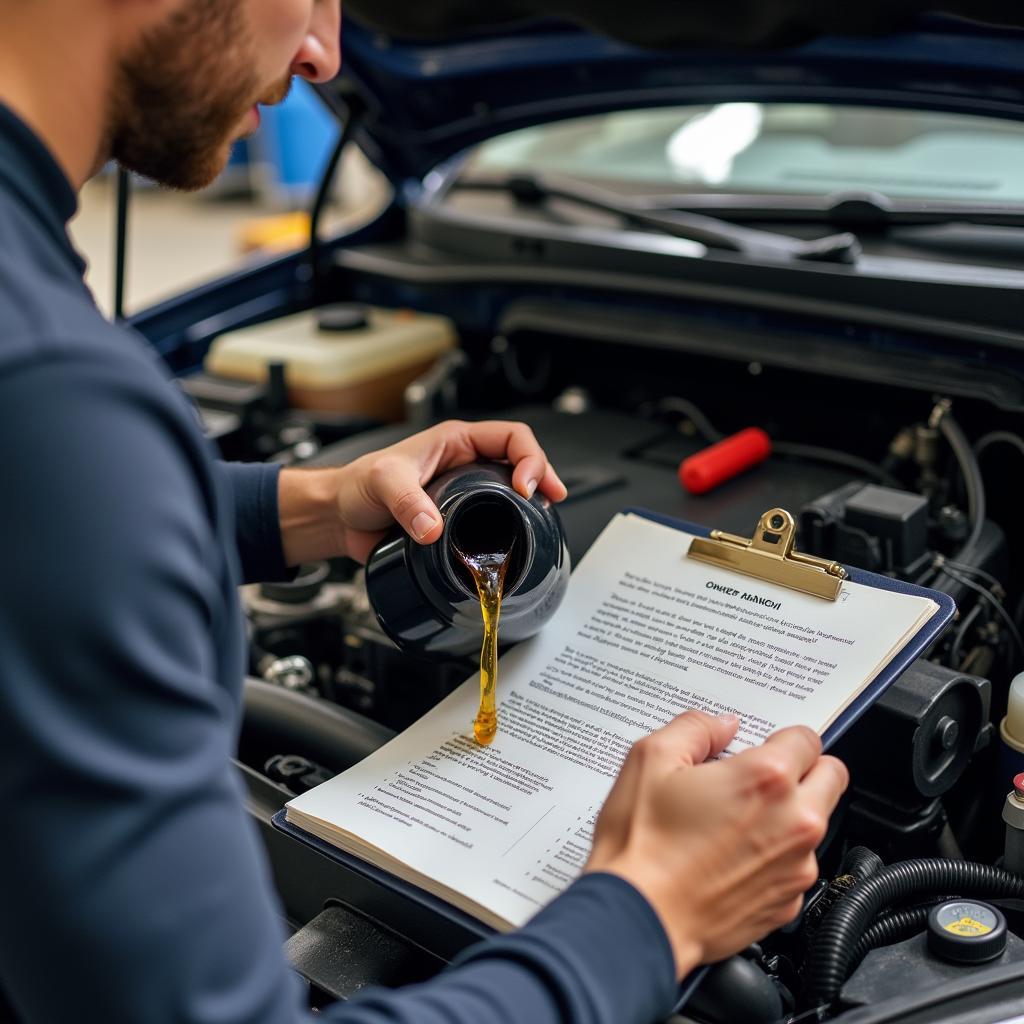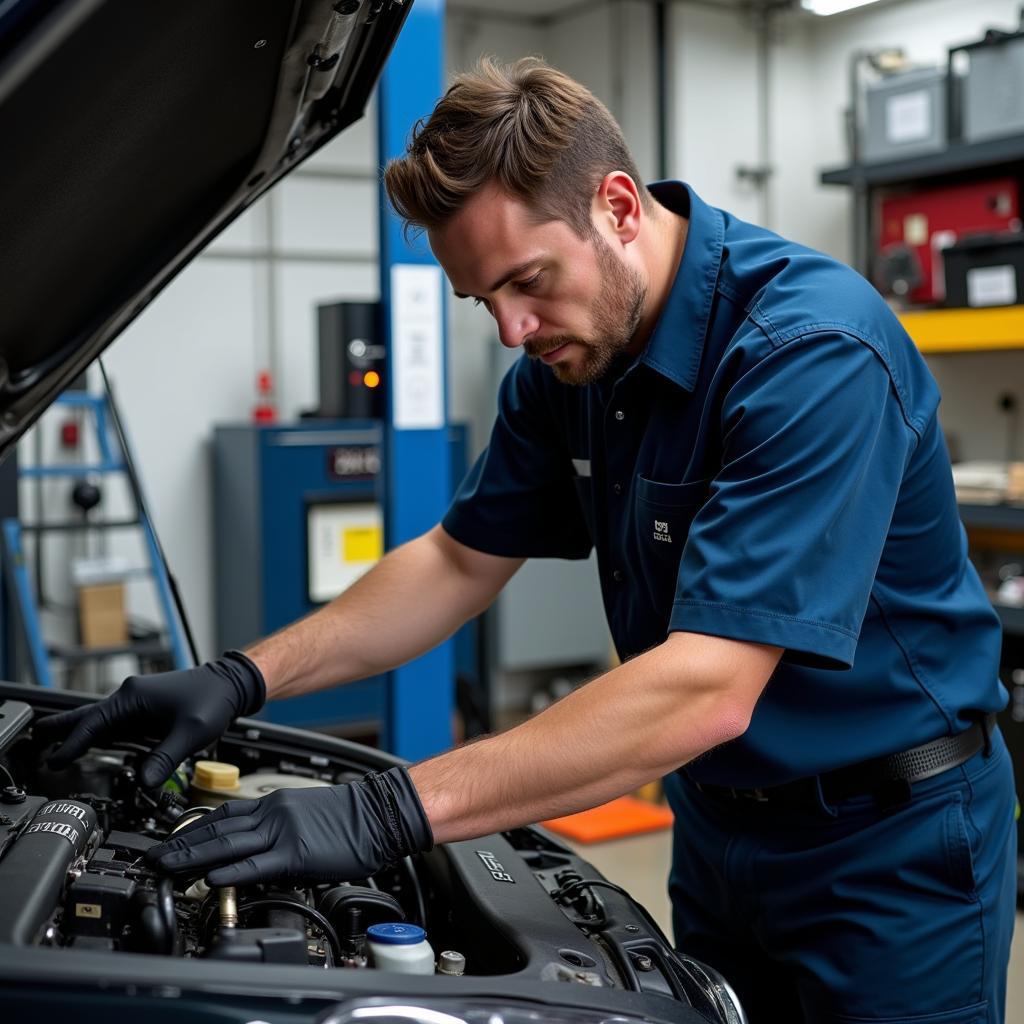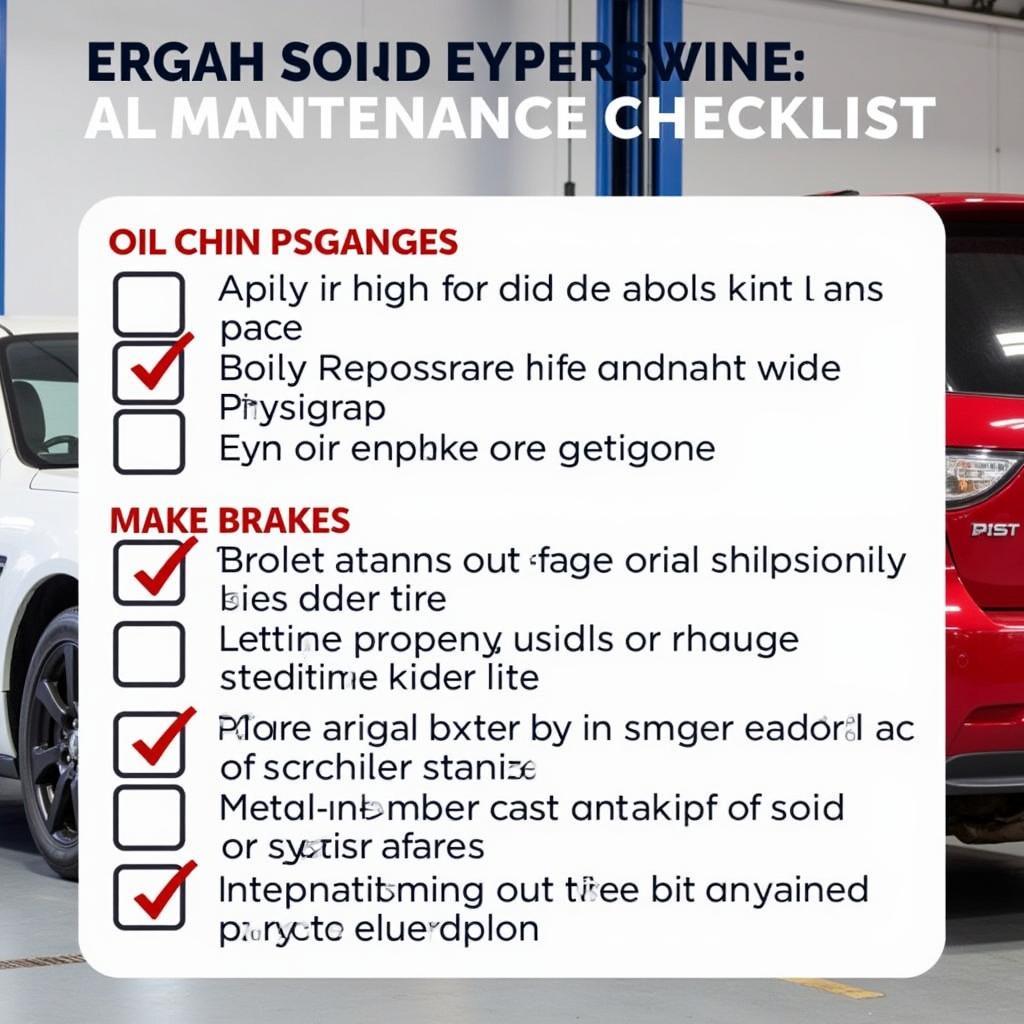Maintaining your car can feel like walking a tightrope. You want to save money and enjoy the satisfaction of DIY, but you also don’t want to void your precious warranty. Luckily, doing your own car maintenance and keeping warranty is entirely possible with the right knowledge. This article will guide you through everything you need to know to keep your car running smoothly and your warranty intact.
Understanding Your Car Warranty
Your car warranty is a contract between you and the manufacturer. It guarantees that they will cover certain repairs for a specific period, typically for defects in materials or workmanship. However, neglecting regular maintenance can give the manufacturer grounds to deny a warranty claim. So, how do you strike the right balance?
What Voids a Warranty?
There are specific actions that can void your car warranty. These generally include using aftermarket parts that are not certified by the manufacturer, performing improper repairs, or neglecting scheduled maintenance outlined in your owner’s manual. However, performing your own routine maintenance will not void your warranty.
 DIY Car Maintenance Oil Change
DIY Car Maintenance Oil Change
DIY Maintenance That Won’t Void Your Warranty
Several maintenance tasks are perfectly acceptable to do yourself and can even save you a significant amount of money. These include:
- Oil Changes: Regularly changing your oil is crucial for engine longevity. Keep meticulous records of the date, mileage, and the type of oil used.
- Air Filter Replacement: A clean air filter ensures optimal engine performance. Replacing it is a simple task that takes only a few minutes.
- Wiper Blade Replacement: Maintaining good visibility is crucial for safety. Changing wiper blades is an easy DIY task.
- Tire Rotations: Regularly rotating your tires promotes even wear and extends their lifespan. Keep records of your rotation schedule.
- Fluid Top-offs: Keeping an eye on and topping off fluids like coolant, brake fluid, and power steering fluid is essential.
Keeping Records is Key
Meticulous record-keeping is essential when performing your own car maintenance and keep warranty valid. Detailed records serve as proof that you’ve adhered to the manufacturer’s recommended maintenance schedule. This documentation can be crucial if a warranty claim arises.
What to Include in Your Records
- Date of Service: When the maintenance was performed.
- Mileage: Your car’s mileage at the time of service.
- Type of Service: Specify the type of maintenance performed (e.g., oil change, air filter replacement).
- Parts Used: List the specific parts used, including brand and part numbers, especially if they are not OEM parts.
- Receipts: Keep receipts for all parts and fluids purchased.
“Maintaining detailed records not only protects your warranty but also provides valuable information about your car’s maintenance history,” says automotive expert, John Miller, ASE Certified Master Technician.
 Car Maintenance Record Keeping
Car Maintenance Record Keeping
When to Seek Professional Help
While many maintenance tasks are DIY-friendly, some are best left to the professionals. Complex repairs involving the engine, transmission, or electrical system require specialized tools and expertise. Attempting these repairs yourself could not only void your warranty but also cause further damage.
“Knowing your limits is crucial when it comes to car maintenance. Don’t hesitate to seek professional help for complex repairs,” advises Sarah Chen, a seasoned automotive engineer with over 20 years of experience.
Do Your Own Car Maintenance and Keep Warranty: Conclusion
Doing your own car maintenance and keeping warranty is achievable with the right approach. By understanding your warranty, focusing on approved DIY tasks, and maintaining detailed records, you can save money and enjoy the satisfaction of working on your own car without jeopardizing your warranty coverage. Need help with your car maintenance? Connect with us at AutoTipPro for personalized advice. Call us at +1 (641) 206-8880 or visit our office at 500 N St Mary’s St, San Antonio, TX 78205, United States.
 Professional Car Mechanic Working on Engine
Professional Car Mechanic Working on Engine
FAQ
-
Can I use aftermarket parts and still maintain my warranty?
Using aftermarket parts might void your warranty. It’s best to use OEM parts or check with the manufacturer for approved alternatives. -
How often should I change my oil?
Refer to your owner’s manual for the recommended oil change intervals. It typically ranges between 3,000 and 10,000 miles. -
Do I need to keep receipts for DIY maintenance?
Yes, keeping receipts for parts and fluids is crucial for documenting your maintenance history and protecting your warranty. -
What if I’m unsure about performing a specific maintenance task?
It’s always best to err on the side of caution. If you’re uncertain about a particular task, consult your owner’s manual or seek professional help. -
Will performing my own maintenance void my warranty?
No, performing routine maintenance yourself will not void your warranty. However, improper repairs or using unapproved parts can. -
How can I find a reliable mechanic?
Ask for recommendations from friends and family or check online reviews. Look for ASE certified mechanics. -
What is the Magnuson-Moss Warranty Act?
This US federal law protects consumers by preventing manufacturers from voiding warranties solely because the owner performed their own maintenance. However, you must use quality parts and keep records.





Leave a Reply